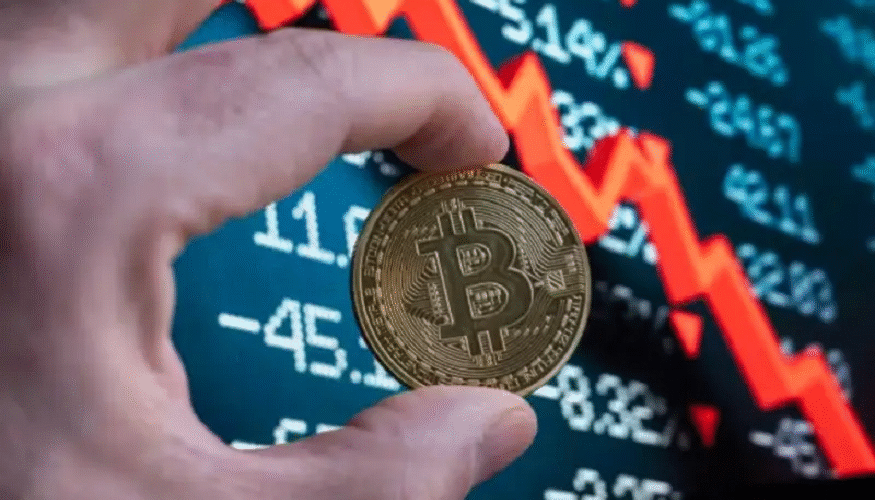The rise of Bitcoin has been one of the most talked-about financial events of the 21st century. From being dismissed as a passing trend to becoming a trillion-dollar asset class, Bitcoin has repeatedly proven its staying power. But despite its popularity, one question still echoes through the minds of investors, skeptics, and curious observers: Will Bitcoin crash again?
The cryptocurrency’s history of wild price swings has made it both attractive and nerve-wracking. For every boom, there’s been a bust. And as Bitcoin once again reaches new highs, many wonder not just how high it will go—but when will Bitcoin crash again, and what will cause it?
Let’s take a fresh look at Bitcoin’s rollercoaster journey, the market forces shaping its future, and what smart investors can learn from the past.
Understanding Bitcoin’s Volatility
Bitcoin was launched in 2009 as a decentralized alternative to fiat currency. Its promise of peer-to-peer digital payments and freedom from central banking systems sparked a new era of financial thinking. But from its inception, Bitcoin has carried one consistent trait: volatility.
Unlike traditional investments backed by company earnings or government guarantees, Bitcoin’s price is influenced by a mix of speculation, news headlines, global events, and investor psychology. That’s why answering the question is Bitcoin going to crash involves understanding both financial fundamentals and human behavior.
Crash Cycles: What History Tells Us
Looking at Bitcoin’s past performance offers some perspective:
- In 2011, Bitcoin fell from $32 to $2 within a few months.
- In 2013, it spiked to over $1,000 before collapsing to $200.
- In 2017, Bitcoin hit nearly $20,000 and dropped below $4,000 in 2018.
- After peaking near $69,000 in 2021, it fell to the low $20,000s in 2022.
Each crash was painful, dramatic, and widely covered in the media. Yet each time, Bitcoin eventually recovered, reached new highs, and drew more believers into the crypto ecosystem. Still, none of this changes the fact that Bitcoin remains highly speculative.
So when people ask, when will Bitcoin crash again, what they’re really asking is: what event, regulation, or shift in sentiment might trigger another mass selloff?
The Most Common Triggers of a Bitcoin Crash
Bitcoin doesn’t crash randomly. Though unpredictable in timing, its steep declines tend to follow a few repeatable patterns:
1.Regulatory News
Governments across the world are still figuring out how to handle cryptocurrency. When countries like China ban mining or restrict exchanges, markets react swiftly. U.S. SEC decisions on ETFs or tax rules also shake investor confidence. Bitcoin thrives in uncertain regulation—but fears of crackdowns can send it tumbling.
2. Macroeconomic Pressure
Bitcoin doesn’t exist in a vacuum. Interest rate hikes, inflation concerns, or global recessions cause liquidity to dry up. Investors tend to pull out of high-risk assets first—crypto included. During economic stress, risk appetite drops, often resulting in sharp corrections.
3. Exchange Failures and Security Breaches
The collapse of Mt. When trust in infrastructure is broken, Bitcoin’s price suffers. New investors especially get spooked by headlines about fraud, hacking, or mismanagement.
4. Speculation and Overleveraging
Like the dot-com bubble or the housing market crash, Bitcoin has had its share of irrational exuberance. Rapid price increases often attract traders using high leverage, which adds fuel to the fire when the price starts dropping. Once liquidation thresholds are hit, cascading sell-offs drive prices even lower.
These factors don’t guarantee a crash—but they certainly make one more likely. If history is any indicator, Bitcoin’s next downturn won’t be a matter of “if” but “when.”
What Makes This Time Different?
Despite the looming fear that Bitcoin will crash again, the 2020s have brought some significant changes to the landscape.
Institutional adoption is at an all-time high. Hedge funds, public companies, and even pension managers now hold Bitcoin in their portfolios. Platforms like BlackRock and Fidelity offer crypto investment products, and Bitcoin ETFs are gaining traction globally.
This wave of legitimacy may smooth out some of the volatility—especially as regulatory clarity improves. With more traditional financial players involved, Bitcoin is no longer just a fringe asset held by tech enthusiasts.
Still, wider adoption doesn’t mean immunity. Institutions can sell just as fast as individuals, especially during bear markets or financial uncertainty. So while some believe mass adoption makes Bitcoin safer, others argue it might make its movements more correlated with traditional markets—removing the “digital gold” appeal.
Can You Predict the Next Crash?
Trying to predict when Bitcoin will crash again is like forecasting the next earthquake. You can study the signs, understand the risk zones, and build smarter strategies—but no one can predict the exact time or impact.
However, some indicators can help investors stay alert:
- Sudden surges in leverage on crypto exchanges
- Widespread media hype with little fundamental support
- A sharp increase in retail investor activity
- Deteriorating macroeconomic indicators
- Significant regulatory developments
These are signs that a correction may be near—not because Bitcoin is flawed, but because no asset can rise indefinitely.
Should You Be Worried?
If you’re an investor or simply considering entering the crypto space, the real question isn’t is Bitcoin going to crash, but whether you’re prepared if it does.
Investors who panic sell during every downturn often lose the most. Those who understand the nature of long-term investing tend to view crashes as opportunities to buy or rebalance. Bitcoin rewards patience—but punishes overconfidence.
Whether you hold Bitcoin as a hedge, a long-term bet on decentralization, or a small speculative piece of your portfolio, the key is proper risk management. Never invest more than you can afford to lose, and make sure it complements—not jeopardizes—your overall financial plan.
Final Thoughts: Crash or Correction?
So, will Bitcoin crash again? In all likelihood, yes. That’s the nature of emerging assets. Is Bitcoin going to crash this year or next? Possibly. The timing is uncertain, but the potential remains. When will Bitcoin crash again? Nobody can say for sure—but history suggests it will, and that it will eventually recover.
Bitcoin is not for the faint of heart. It’s for those who understand its risks, respect its volatility, and invest accordingly. Whether you’re in it for the technology, the profits, or the principle of decentralization, one thing is clear: this story isn’t over.
Crashes are part of the journey—but so are comebacks. Knowing the difference between panic and perspective may be the smartest investment of all.

